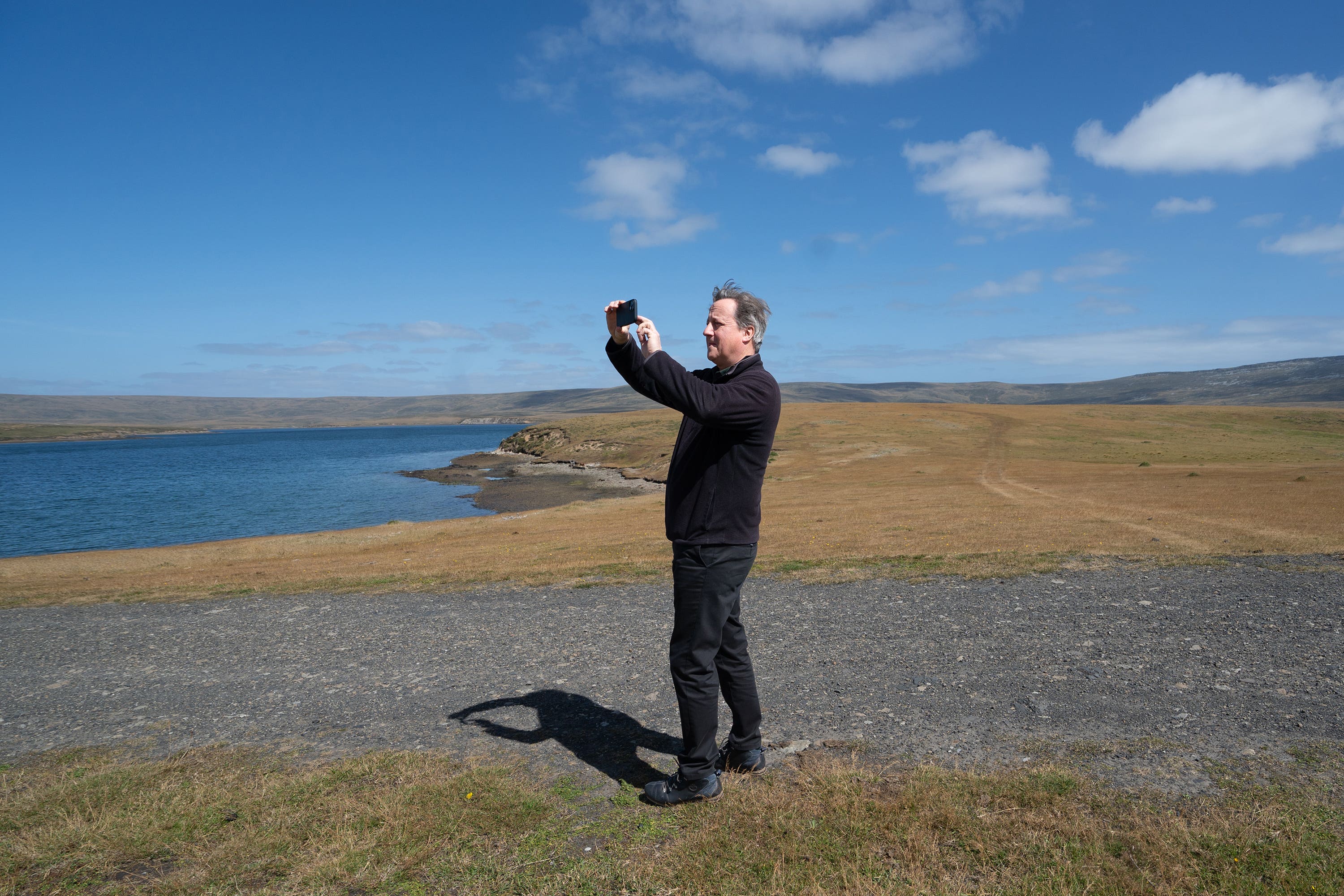Lord Cameron hopes people of Falkland Islands want to stay British ‘forever’
The shadow of the 1982 Falklands War hangs over UK-Argentine relations.

Foreign Secretary Lord Cameron said he hoped the people of the Falkland Islands would want to stay British “forever” as he insisted a drive to improve relations with Argentina would not come at their expense.
Speaking in the Falklands’ capital Stanley, he played down suggestions from the Argentinian president Javier Milei that there could be a negotiation on the future of the UK overseas territory.
The former prime minister said: “Let me be absolutely clear: as far as we are concerned, as long as the Falkland Islands want to be part of the UK family they are absolutely welcome to be part of that family and we will support them and back them and help protect and defend them absolutely, as far as I’m concerned, for as long as they want.
“And I hope that’s for a very, very long time, possibly forever.”
The shadow of the 1982 Falklands War hangs over UK-Argentine relations, but Lord Cameron and Mr Milei had a “warm and cordial” meeting at the World Economic Forum in Davos in January, although on the issue of the islands, the Foreign Office said “they would agree to disagree, and do so politely”.
Lord Cameron told reporters in Stanley: “Now of course we want to have good relations with Buenos Aires, with the Argentine government.
“The new government, I think, have taken some positive steps and we’ll have good relations with them, but it will never be at the expense of the wishes of the Falkland Islanders, who in our view absolutely come first in this manner.”
Lord Cameron earlier visited Falklands War battle sites as he became the first Foreign Secretary to visit the South Atlantic territory in 30 years.
He was taken on a helicopter tour of the islands, stopping at San Carlos and Goose Green, two of the most significant sites in the 1982 war.
At a ceremony in Stanley, he laid a wreath at the Liberation Memorial, with a handwritten note reading: “In solemn remembrance of those who died defending the rights of all on these islands to determine their future.”
He also paid tribute to the dead on the other side in the conflict with a low-key visit to the Argentine military cemetery.
The former prime minister’s visit is the first by a member of the Cabinet since then defence secretary Sir Michael Fallon’s trip in 2016.
The last visit by a foreign secretary was Lord Hurd in 1994.
Lord Cameron was also questioned about energy policy in the Falklands – which has potential for both renewable development and the exploitation of oil reserves.
The Foreign Secretary said the Falklands were “making some great steps in terms of renewable energy, particularly in terms of wind power, and also solar power and so we very much backed you in that”.
“You have your own government making their own plans and we will support you in that.
“But I would just stress, while we support net zero very, very strongly, it is net zero.
“And so we in the United Kingdom, we’re making sure we are actually going to be having some extra North Sea licences for oil and gas in the North Sea.
“And we think other countries, if they can responsibly extract hydrocarbons, that can be part of that zero because of course we’re still going to need oil and gas in the short term while we transition. I think that’s an important point to make. It’s net zero, not zero.”
He indicated the UK could be prepared to back the Falkland Islands government to use its own financial clout and borrowing power to support oil exploration.
Bookmark popover
Removed from bookmarks